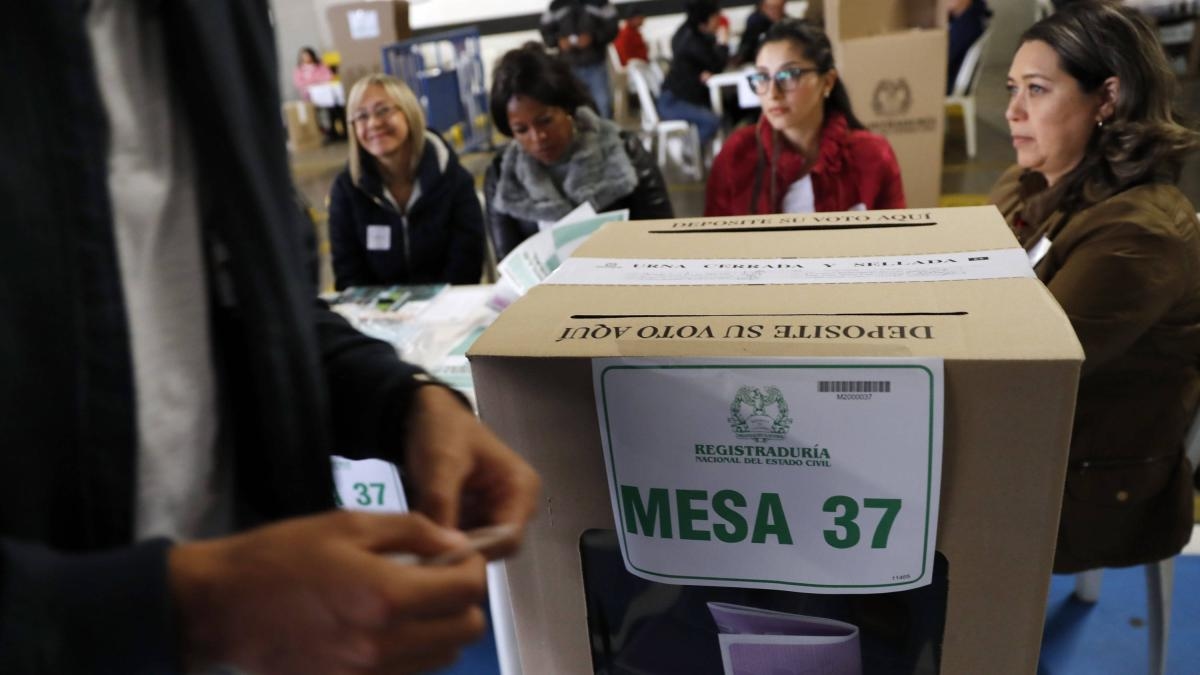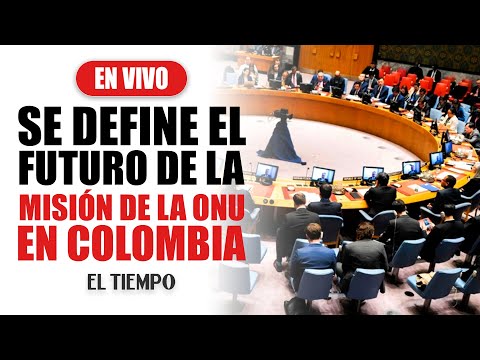The doubts that remain about the polling law one day before the restriction on presidential surveys ends

This Saturday marks the end of the ban on publishing polls established by Law 2494 of 2025, "which establishes measures regarding the preparation, publication, and dissemination of polls and dictates other provisions." However, polling firms have stated that they will not yet release their statistical studies through the media, as they claim the legal uncertainty is too great to do so. "The doubts persist, and we don't know if we're going to start publishing polls," warned Víctor Muñoz, founder of the polling firm Guarumo.
Beyond the differences with the articles as a whole, unanimously approved by the House and Senate and which currently has 8 lawsuits in the Constitutional Court asking to declare it unconstitutional in its entirety or some of its points, the polling firms have drawn attention to the non-compliance of the electoral authorities in several of the points that should have been ready before the end of the restriction on publishing polls of voting intention.
The main target of criticism has been the National Electoral Council (CNE) and the failure to carry out the two tasks assigned to it: creating the 'Technical and Oversight Commission for Political and Electoral Opinion Surveys' and updating resolutions 23 of 1996 and 50 of 1997.
The commission will be responsible for reviewing compliance with the law and will advise the National Electoral Council (CNE) on its role of “regulating, monitoring, and overseeing political opinion polls and studies.” According to the text approved by Congress, the commission was to be established within two months of the law's enactment and will be composed of five members with professional degrees in statistics. Its first cohort will be drawn from nominations submitted by universities with accredited, high-quality statistics programs.
Although it was supposed to be ready before September 25, the Commission has not yet been formed, so officially there is no body to closely monitor compliance with the law. Furthermore, Muñoz warned that without the commission, the resolution cannot be updated, since any modifications must be based on the recommendations of experts.
The president of the National Electoral Council (CNE), Cristián Quiroz, told EL TIEMPO that the process of forming the commission has progressed. While it was supposed to be ready before September 25, he explained that the delay was due to the fact that the authorized universities—only three of which meet the legal requirements—were slow to submit the profiles for selecting the commissioners.
He indicated that the selection process began last Thursday afternoon and that the appointees will be chosen from the 15 applicants from the National University (Bogotá and Medellín campuses) and the University of the North. The other eligible institution, the University of Pereira, stated that they do not have the required candidate profiles. A noteworthy detail is that the regulations expressly state that “each accredited program may nominate up to three candidates.”
César Caballero, director of the polling firm Cifras y Conceptos, warned that one of the major problems with the current law was the requirement that applicants be accredited universities, which narrowed the pool of candidates to just three institutions. He cited the University of Pereira as an example, which stated that it does not have the ideal profiles required by the legislation. “The universities have said they don't have the sample size and won't send an expert. The committee won't be able to be formed. They didn't realize the mistake; it's ignorance on the part of the law's authors,” Caballero stated.
In response to this criticism, the authors of the law, consulted by this newspaper and who requested anonymity due to their desire to move on from the controversy surrounding the text currently under review by the Constitutional Court, explained that while it is true that few universities are accredited, the goal is to ensure quality in the surveys, and therefore this task cannot be left to "garage universities."
This week, the National Electoral Council (CNE) issued its resolution formalizing the selection process. While various steps have been underway, the five members of the commission will only be selected this Tuesday. Therefore, several sources consulted indicate that even after the ban ends, the legal uncertainty is so great that they will not take any risks and will continue to withhold the publication of their statistical studies.
Exclusion of municipalities Regarding the alerts about the resolutions to be updated by the National Electoral Council (CNE), Víctor Muñoz pointed out that, above all, “it should establish what happens in territories with complex public order situations, and whether these areas can be excluded from the sample.” In that sense, the firms' statements indicate that there are areas that the new law mandates be included in the sample, but the difficult public order situation would make it impossible to conduct the surveys there. Therefore, they stated that it is necessary to clarify whether exclusions can be made due to public order issues.
It is worth remembering that the project seeks to guarantee a greater representation of the national territory, beyond the capital cities, so it is required that the population to be surveyed include all municipalities that exceed 800,000 inhabitants (Bogotá, Medellín, Cali Barranquilla, Cartagena and Soacha) and the municipality with the largest population in the regions that do not have such a population density and "a subset of small, medium and large municipalities from all regions of the country."
The Electoral Observation Mission (MOE), which accompanied the drafting of the text and the discussions, pointed out that this is not entirely true, since the law gives them the freedom to choose the small, medium and large municipalities, so it is not necessary to regulate this issue of exceptions, since the only mandatory ones are those that exceed 800,000 inhabitants.
The characters to ask Another concern raised by the polling firms is that the regulations, through modifications to existing resolutions, must clarify which people should be included in the surveys, as the law is too broad on this point.
“When inquiring about knowledge, favorability, opinion about politicians or public figures likely to be elected to a single-member office by popular election, candidates who have significant public relevance or notoriety, have participated in similar previous elections, or have manifest favorability or recognition must be included,” says Article 5.
Regarding this point, Martín Orozco, president of the firm Invamer, questioned that “a paragraph says that we have to ask about figures with favorable reputations and clear knowledge. They expect us to know who has clear knowledge without having measured that beforehand.”
At this point, the MOE indicated that the law is clear that “after the registration of candidacies, everyone must be questioned,” but acknowledged that before this period there are certain gaps that must be clarified. However, it was made clear that this aspect should not be included in the resolutions in question, but rather is a task for the oversight commission that does not yet exist: “The Commission can provide more technical details for the selection of the individuals to be questioned.”
Controversies in the audits The survey law established an audit process to review the proper procedures in each published study. Polling firms have also warned that there is a lack of clarity regarding how the audits should be conducted, as the law is not very clear about the quality control process. The founder of Guarumo emphasized that there are unknowns regarding "how the audits will be carried out and how the data will be handled."
César Caballero, director of Cifras y Conceptos, elaborated on this last point. He noted that there is a “tension between complying with the habeas data law and the obligation to send databases for audits,” since they are supposedly being forced to submit to the National Electoral Council (CNE) the names of the people who participated in the surveys. Faced with this potential conflict between a fundamental right and a law, “we will uphold the superior right of habeas data,” Caballero stated.
In response to the doubt expressed by the director of Cifras y Conceptos, one of the participants in drafting the law clarified that the proposal does not violate the right to habeas data, since the article is clear that this data will be delivered "anonymizing personal information in accordance with the standards of personal data processing."
The Electoral Observation Mission (MOE), for its part, pointed out that the legal requirements regarding the technical specifications are clear, but there are some points that should be clarified, such as the issue of intellectual property registration. Polling firms have expressed concern about issues like the distribution of the formulas used to conduct the surveys. Therefore, the oversight body explained, a commission should be established to draft the necessary regulations.

The future of the UN Mission in Colombia is being defined. Photo:
JUAN SEBASTIAN LOMBO DELGADO
eltiempo





